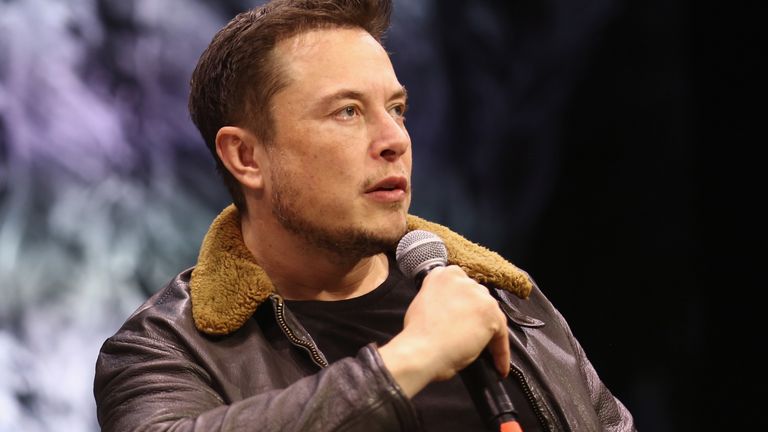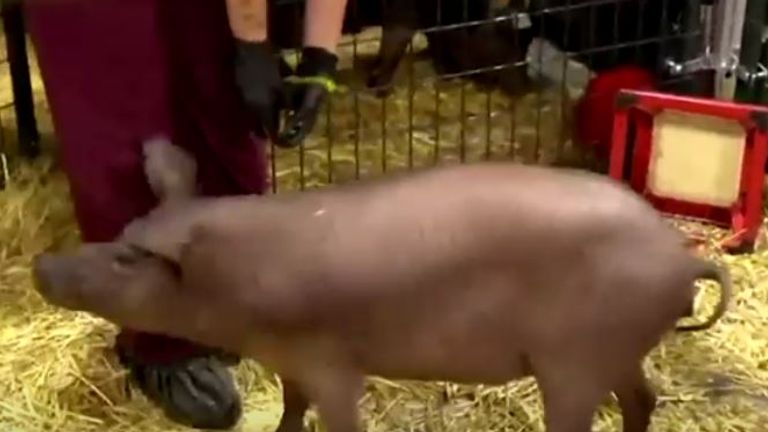A startup co-founded by Elon Musk has implanted new wireless technology into the brains of pigs with the aim of helping people with severe neurological conditions.
The billionaire entrepreneur said that the company, Neuralink, had three pigs with two coin-sized implants each.
He described them as “healthy, happy and indistinguishable from a normal pig”.
Neuralink is able to predict the animals’ limb movements during treadmill runs at “high accuracy” using the implant data, Mr Musk said.
He described the sensor – smaller than a fingertip – as “a Fitbit in your skull with tiny wires”.
“I could have a Neuralink right now and you wouldn’t know,” he said mysteriously. “Maybe I do.”
The San Francisco-based company has sought approval from the US Food and Drug Administration for the project, which has seen scientists develop a tiny implant with more than 3,000 electrodes, attached to flexible threads measuring about the tenth of the size of a hair, and capable of monitoring around 1,000 neurons.
It is hoped this could go some way towards finding a cure for neurological conditions such as Alzheimer’s, dementia and spinal cord injuries.
Mr Musk said on Friday that the implantable device could “actually solve these problems”, also mentioning memory loss, hearing loss, depression and insomnia.
Ultimately, it could also link humans with artificial intelligence.
Mr Musk has previously warned about the risks of artificial intelligence but on Friday he said the implant would “secure humanity’s future as a civilisation relative to AI”.
The first trials will focus on patients with paralysis or paraplegia, according to the company’s head surgeon Dr Matthew MacDougall.
He did not say when the trials would start.
Most cutting-edge research into connecting brains and computers is done on animals, as safety challenges and regulatory hurdles prevent larger human trials.
Mr Musk said in 2019 that he was hoping to get regulatory approval for human trials by the end of this year.
While many scientists think reading and stimulating brain activity in humans is possible, they also agree the timeline given by Mr Musk is not.


